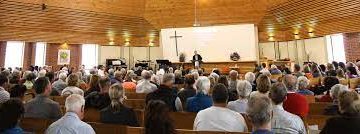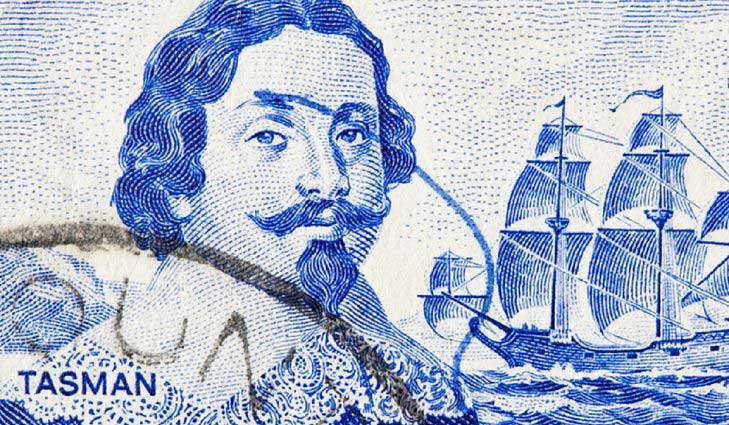Martina’s early memories were fixed in World War II. Her family lived in Den Helder, a natural harbour on the tip of North Holland. The harbour was also a naval base, and the object of much bombing. Some of the bombs, towards the end of the war, were German V1 and V2 flying bombs that failed to cross the Channel.
The family took shelter from bombing in the toilet space under the stairs. Two adults and four children could all, if they put their feet in the right spot, just fit. The exercise created a life-long phobia of small and enclosed spaces.
After the war, Martina trained and qualified as a pre-school teacher. The school building was a hastily erected post-war construction, a potential fire trap, and provided with poor hygiene facilities. The pre-school class of forty children was on the fourth floor.
The family continued to grow after the war until there were six girls and two boys. Father had a coal business, later switching to oil, and had forty employees. Both parents insisted that all their children be educated according to ability – an unusual position in this days. Part of Martina’s training included two years at evening school.
Gilbert was in Tasmania for more than seven years when he made his first return trip to Holland. During that holiday he went with his sister to a church youth camp, where he met his sister’s work colleague, Martina. Four weeks later Gilbert and Martina were married. He promptly ‘disappeared’ as he had a return ticket on a boat. A few weeks later Martina flew to Tasmania, arriving at night.
At that time Gilbert shared a house in New Norfolk with Henk Sikkema, and it was to this dwelling [pickers hut] that Martina was taken, in the dark. When she woke the next morning, she was home alone – the men had gone off to work. When she looked outside, she began to wonder, and worry. Men in coats, carrying Gladstone bags, were getting out of cars and entering houses which had the blinds down. In her Dutch mind, the scene was of epidemic, perhaps even of multiple deaths. In Martina’s world, Gladstone bags were carried by doctors, and closed blinds signified a very ill person or a death.
Although her English language skills were almost non-existent, Martina determined to go to Hobart that day to shop for shoes – the high heels she had were not going to be comfortable in the current situation. The wall of rock just outside the train window was a worry for someone who had never seen this before. In the city she fixed on the highest point – the GPO tower – and kept it in sight to avoid getting lost.
Three months later Gilbert found accommodation in Barrack St. The plumbing was primitive, the sanitary arrangements were on a share basis with the landlord and the bodyworks employees, and some of it had probably never ever been cleaned. The washing line was strung across the backyard, and Martina had to ask for the cars awaiting repair to be removed to hang her wash, and again to bring the washing in.
The next move was to 160 Roslyn Ave, Blackmans Bay. Gilbert had bought this property to build hothouses to grow tomatoes. The dwelling on the property had four walls and a roof. It was riddled with fleas, had one tap but no basin or sink, lots of creepy crawlies, no cupboards, gaps between the weatherboards, no heater. The old potato sacks on the floor billowed when it was windy. The dunny was outside and so small, one always sat with feet and lower limbs outside.
Gilbert and Martina moved into this building when their first son, Robert, was ten days old, and stayed for two and a half years. Lemme Herweynen had offered to help with the move, but he was running late and had to be back early, so all of their possessions were placed, without ceremony, beside the truck for Martina to bring inside.
Gilbert was then assistant to the manager of the Hobart City Council Parks and Gardens Department, and otherwise busy with his tomatoes. Martina’s job was to sell the tomatoes if people called at the front door. One day there was an extra job. Gilbert had bought ten pounds worth of horse poo for the glasshouse, but it wasn’t possible to get the truck around the house, so the load was dropped in the front yard, and Martina had to shovel and barrow the lot.
A new house was built on the property, and the family moved in as soon as they could, long before it was ready. There were lots of hazards, but the children proved to be wary or rubbery enough to avoid permanent injuries.
The next house, also unfinished, was further along Roslyn Ave, at #233. This came with a small shop and a contract to deliver mail along the Tinderbox Road. Customers often rang ahead with requests for milk and bread to be brought as well. This was done by Martina in a car without hand brake, and with three children in the back. This adventure lasted seven years.
Martina’s sister Jacky joined the family in a part-finished house in 1967. With her help and that from Mrs Hasselaar at part-finished #231, the women kept their sanity.
Eventually it was decided that the shop wasn’t viable, as many had warned them, and they sold up. Martina took charge of the sale, and gained a considerable additional amount, because Gilbert was already thinking about something two steps into the future. Besides building a new house at 3 Roslyn Ave, the extra money allowed the purchase of a car, and the couple began a business with indoor plants in government buildings. This business thrived, but the marriage did not.
Over the years the couple found that love was insufficient to maintain a happy home life, and in 1981 chose to live separately. Gilbert moved to the pot plant property, and Martina to a new house. The new house was a happy house, where lots of people felt welcome. The children also brought friends home – at one stage Martina counted more than 100 mugs in her house to cater for all the (instant in those days) coffee drinkers.
To supplement her meagre income, Martina worked in the Taroona High canteen for six years. Together with Jill White, one of her colleagues, she started a singles club which enabled people of like interest to enjoy events together. The last six years of her working life was devoted to providing after school care to the three children of a professional couple, supervising their homework and making preliminary preparations for the evening meal.
In 1998 she met Terry, brother of Jill White, at a birthday party. He was also retired, albeit without a retirement package because his employer had become bankrupt. The two became best friends. The highlight of their time together was a round-the-world-trip over two months, staying with friends. Terry was diagnosed with lung cancer in 2002, and died on Boxing Day.
The house on the hill proved too much for Martina’s worn out knees, and it was time to downsize, so she bought a unit in Kingston Beach, where she still lives happily.
The family bonds remain strong. Her parents visited Tasmania almost every summer, a total of twenty two times, to escape the Dutch winter, after they retired in 1972. Since leaving home, Martina has visited her parents and siblings in the Netherlands twenty times. (June 2019)


